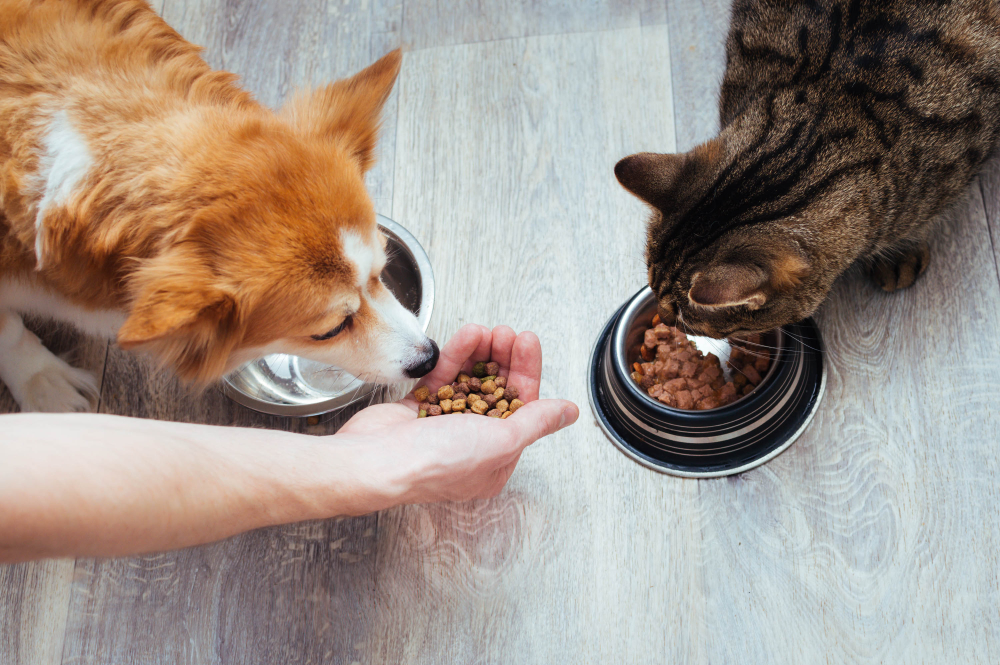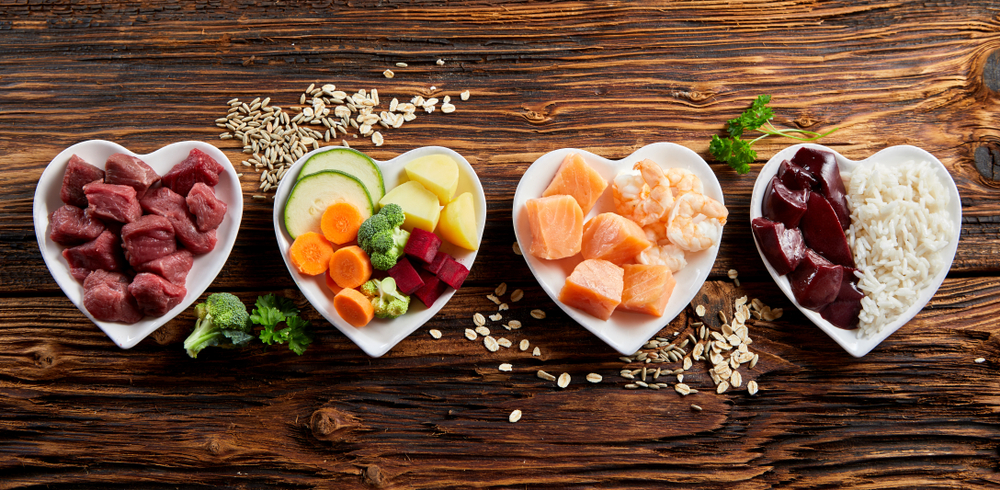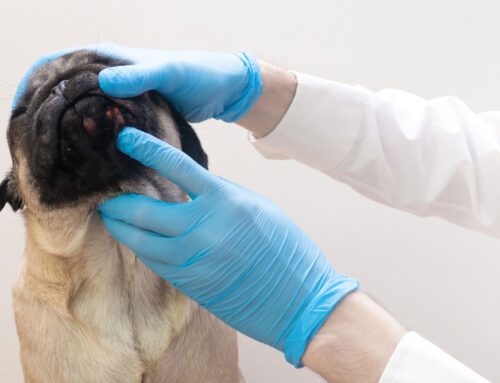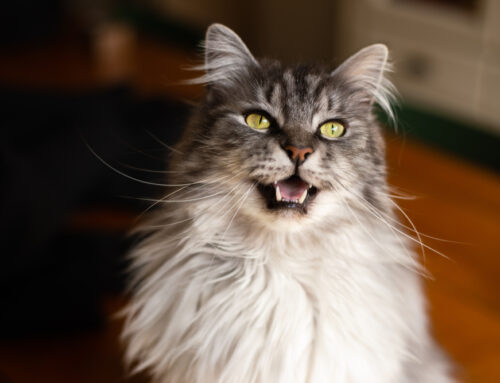You want what’s best for your pet, including their diet. However, pet nutrition marketing isn’t immune to misconceptions that can confuse you about the food that is most nutritious for your furry friend. To help you make an informed decision about your pet’s diet, our Palisades Veterinary Hospital team debunks common pet nutrition myths, providing you with evidence-based insights.
Myth #1: Raw diets are superior to standard pet food
Fact: Raw diet proponents argue that these foods are comparable to what animals eat in the wild. However, they’re failing to mention that raw foods can cause illnesses that often shorten wild animals’ lives, and this risk also applies to pets. Raw diets pose significant health risks to you and your pet because they often harbor harmful bacteria such as salmonella and E. coli. Additionally, raw diets may lack essential nutrients for pets’ overall health and well-being. When formulated by reputable manufacturers, commercial pet foods undergo rigorous testing to ensure they meet nutritional requirements set by veterinary nutritionists. To feed your pet healthy raw food, choose baby carrots or blueberries rather than raw meat.
Myth #2: Grain-free diets are healthier for pets
Fact: Grain-free diets have gained popularity recently, fueled by the belief that grains are inherently harmful to pets. Many pet owners believe their pets’ allergies are caused by grains. In reality, thorough allergy testing is required to pinpoint a pet’s allergens, and in many cases, food allergies are caused by proteins. Grains’ absence does not necessarily make a diet healthier for pets. The Food and Drug Administration (FDA) has raised concerns about a potential link between grain-free diets and dilated cardiomyopathy (DCM) in dogs. Grains, such as corn, wheat, and rice, provide pets with carbohydrates, fiber, and essential nutrients. Feeding your pet foods that include whole grains, such as brown rice, is a healthier option, rather than skipping grains entirely.
Myth #3: Cats should drink milk
Fact: Contrary to the long-held belief, cats, like most adult animals, should not drink milk. Many cats are lactose intolerant, meaning they lack the enzyme necessary to digest lactose, the sugar in milk. Giving milk to lactose-intolerant cats can lead to digestive upset, including diarrhea and vomiting. While cats may enjoy milk’s flavor, you should provide your whiskered pal with fresh water as their primary hydration source.
Myth #4: Cats can thrive on a vegetarian diet
Fact: This myth is not only false but also dangerous. Cats are obligate carnivores, meaning they derive their nutrition from meat proteins. Taurine is an essential amino acid in meat, and without it, cats can become blind or develop heart disease. A vegan or vegetarian cat diet, while available, is never healthy for your whiskered pal.
Myth #5: Animal by-products in pet foods are unhealthy
Fact: The terms “by-product” and “meal” on your pet’s food label might not sound too appetizing, but these ingredients are nutritious for your four-legged friend. By-products are sanitized animal carcass parts that include organ meats such as the heart and liver. By-products and meals are safe for your pet to consume and offer vitamins and nutrients that muscle meat alone cannot.
Myth #6: Pets can self-regulate their food intake

Fact: While some pets may self-regulate their food intake, many others overeat if given the opportunity. If you allow your pet to graze on food throughout the day, they can easily become obese and experience related health issues. To help ensure your pet stays at a healthy weight, you must measure their meal portions and monitor their food intake according to their age, breed, activity level, and body condition. Consult with our veterinarian to determine the appropriate portion size and feeding schedule for your pet.
Being able to separate pet nutrition facts from myths can be challenging, especially with the abundance of misinformation circulating online. By learning the facts about common pet nutrition myths and relying on evidence-based information, you can make informed decisions that promote your pet’s health and vitality. If you have questions about your pet’s diet, call our Palisades Veterinary Hospital team, so we can provide personalized nutrition guidance tailored to your pet’s specific needs.







Leave A Comment